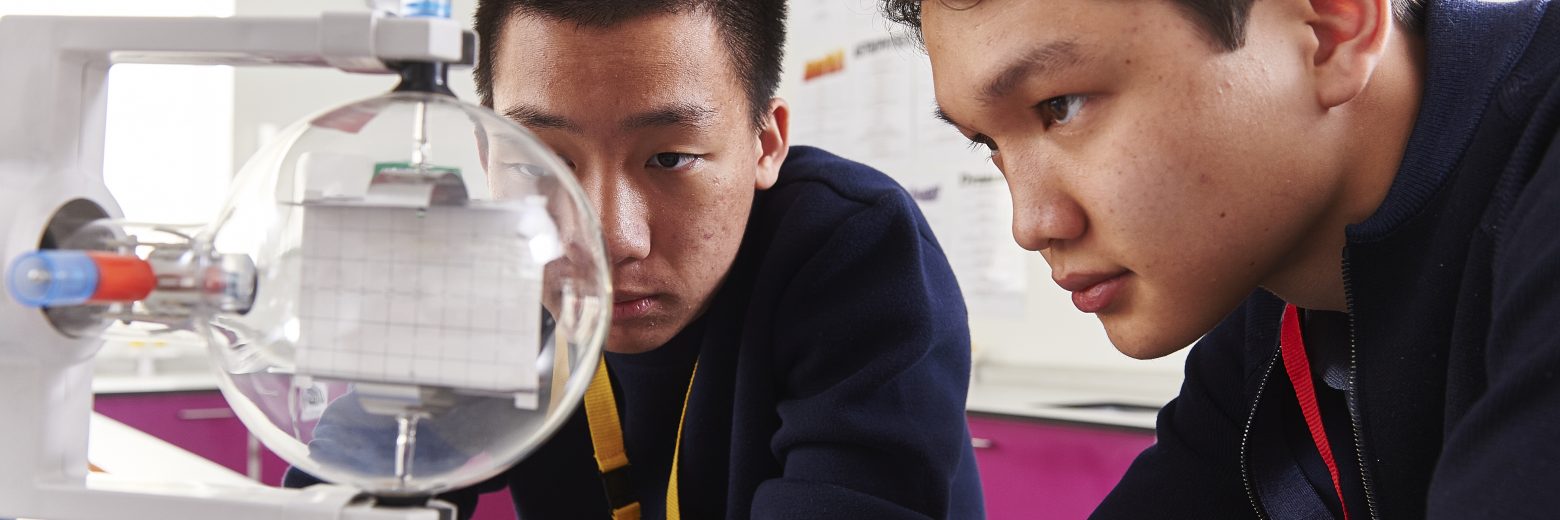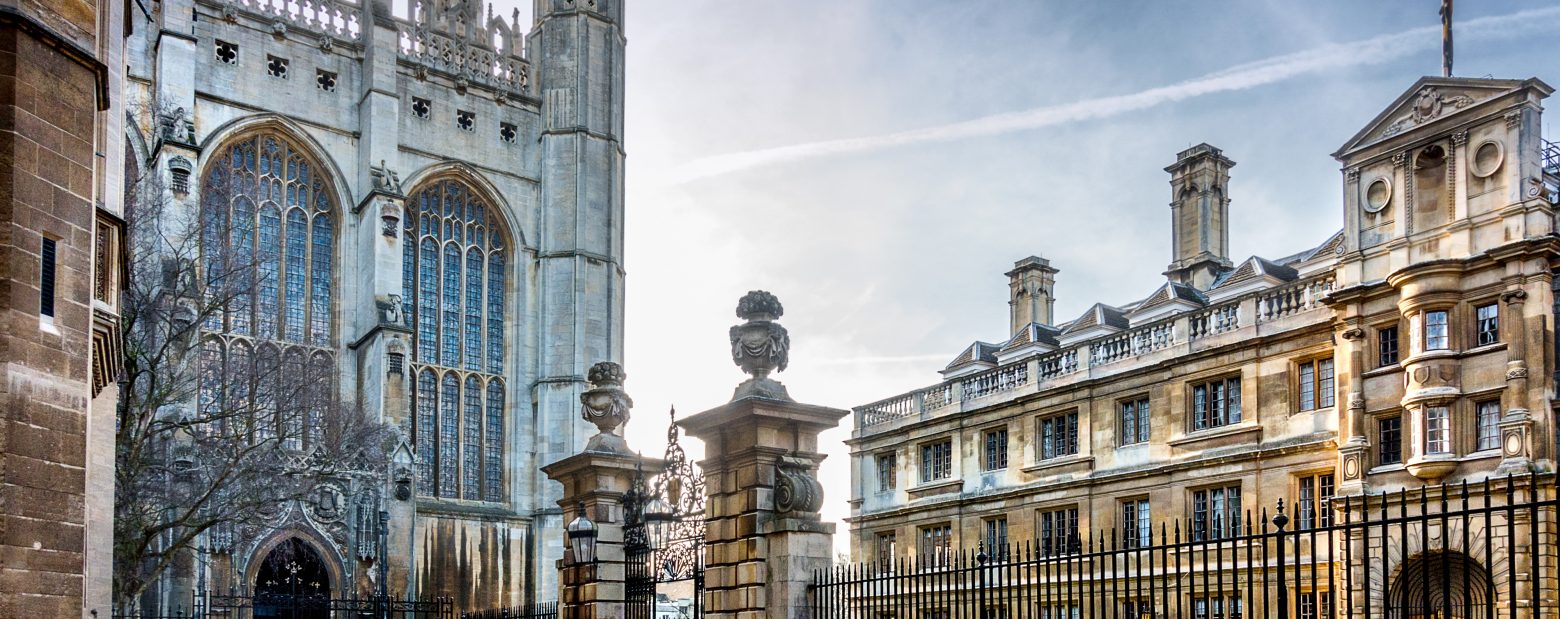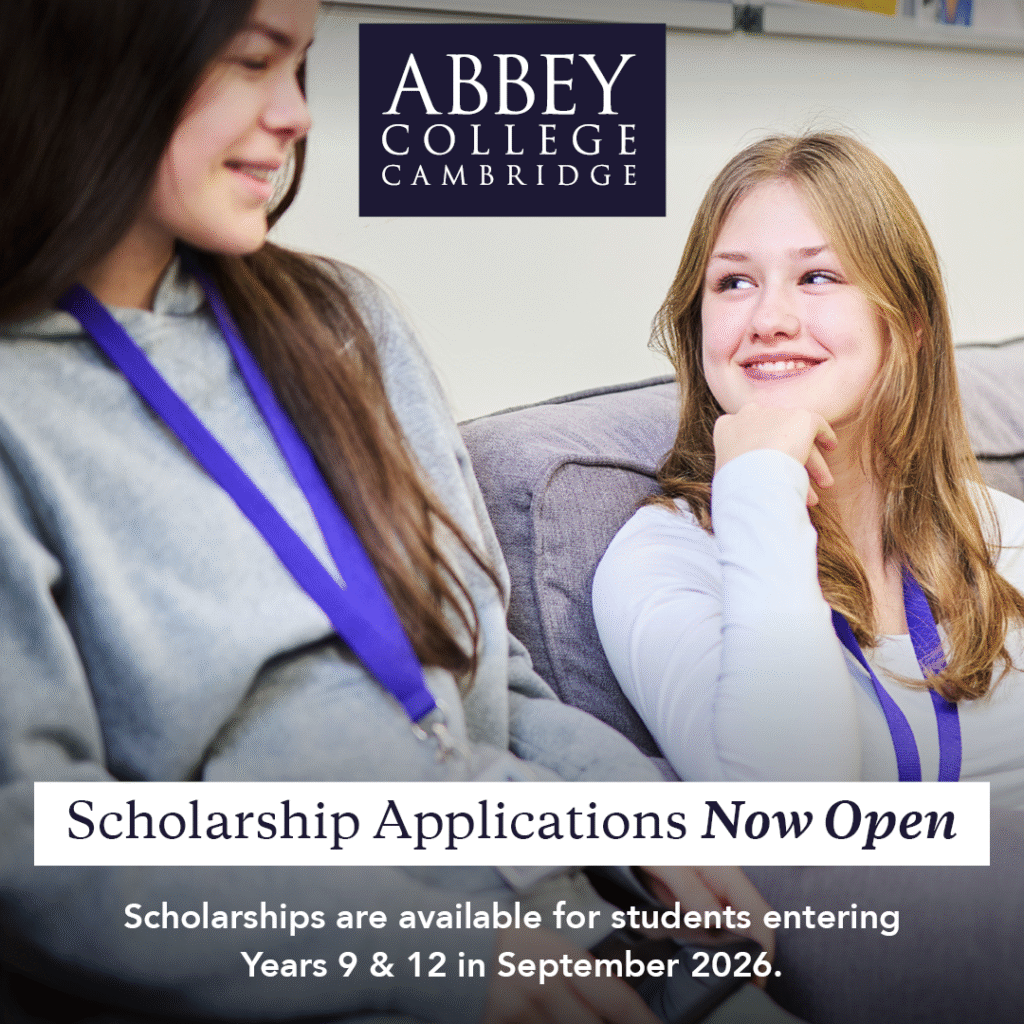A-Level Physics
Physics gives you a closer look at and a deeper understanding of the laws of the universe.
WHAT IS A-LEVEL PHYSICS?
A dictionary would say that “Physics is the study of energy and matter and the interaction between the two.” We would say that Physics is everything from the smallest particle created in a particle accelerator right up to the massive objects which make up the whole universe. It contains all of our past, right back to the Big Bang, through to the future and fate of the universe. It allows us to predict what will happen to a spaceship as it orbits a star and also what happens to a single particle of gas.
It is also the starting point of many technologies in the world around us – from a musical instrument to an MRI machine to the entire internet. Physics is the most fundamental and also the widest reaching of the sciences; that is why it is such an exciting subject to study.
WHY STUDY A-LEVEL PHYSICS?
A-level Physics opens up never-ending opportunities in the world of work and of higher education. Studying Physics will change the way you think, not only about the physical world around you but other parts of your life. As well as going on to study Physics or the other sciences at university, A-level Physicists can go on to study Engineering, Economics, Business, Medicine or Architecture.
During our course you will learn how to apply your Physics knowledge to unfamiliar situations which can then be applied in all walks of life. You will also learn to understand how uncertainties in experiments allow us to critically assess information from all sources. Being a Physicist is not just a career but a way of thinking.
WHAT WILL I STUDY IN A-LEVEL PHYSICS?
Our Physics course follows the Edexcel specification. The first year of the A-Level is the backbone of the course. You will learn:
- Mechanics – how objects move and what causes them to move
- Electric circuits – how energy is transferred in a simple electric circuit
- Waves – how the properties of wave can be used to explain simple phenomena such as diffraction and interference. We also look at how lenses work
- Materials – why some objects float and some sink, how forces on materials cause them to change shape
- Quantum Nature of Light – how one experiment explained by Einstein at the beginning of the 20th century changed how we view the world
In the second year of the course you will go into more depth and look at:
- Motion in a circle and simple harmonic motion
- Electric, magnetic and gravitational fields
- Capacitors
- Nuclear physics and radioactive decay as well as particle physics
- Astrophysics and cosmology
Physics is a practical and mathematical subject and so naturally goes very well alongside A-level Mathematics and Further Mathematics course options, but be prepared: A-level Physics itself is only partly about Maths. The exams consist of only 40% mathematical questions, with the rest being made up of explanation and description questions. Alongside the theory we have a series of experiments designed to increase your understanding of the work, as well as developing important practical skills.
Assessment
This course is assessed via written papers and a practical skills assessment.
PHYSICS OUTSIDE THE CLASSROOM & OLYMPIADS
The College has a telescope that is used for our Astronomy Club. Students are shown how to use it and we take students on evening trips throughout the year to rural Cambridge where they can view the stars, moon and planets as part of Abbey Inspires. Also part of Abbey Inspires are our trips to the Cavendish Laboratories of Cambridge University. Every year they put on 6 lectures designed for local A-level students who are interested in Physics. These, again, are evening trips and the students gain a lot from them and enjoy the experience. For further information: https://outreach.phy.cam.ac.uk/programme/cpc. There is also a yearly trip to the Cambridge University Engineering Department as part of the Physics & Engineering Pre-Degree Diploma Programme we run for Y12 A-level students.
Physics Olympiad
At Abbey College Cambridge we believe in challenging our students to achieve beyond the traditional curriculum. Every year a number of our students take part in the British Physics Olympiad. Run by the University of Oxford and the Institute of Physics, the Olympiad is designed to challenge and reward the best Physicists in British schools and provides the opportunity to flex your physics muscles.
During the academic year 2019-2020 Agustin in Year 13 received the “Top Gold” award in the British Physics Olympiad (both in round 1 and in round 2). He also took the British Astronomy and Astrophysics Olympiad and achieved a gold award. He is now studying Natural Sciences at the University of Cambridge.
GOOD SUBJECT COMBINATIONS TO TAKE WITH A-LEVEL PHYSICS
You need to be comfortable with using Maths as a tool. Although it is not essential to take A-Level Mathematics you will find it a great help – indeed many students study Mathematics and Further Mathematics along with Physics. Chemistry and Biology are obvious choices to study alongside Physics if you want to study a science based course at university, Economics if you are thinking of an Engineering or Economics course and Art if you are considering Architecture or Design.
A-LEVEL PHYSICS RESULTS AND DESTINATIONS
| Year | A* | A*-A | A*-B |
| 2024 | 22% | 44% | 67% |
| 2023 | 27% | 47% | 84% |
| 2022 | 23% | 50% | 73% |
Recent destinations of our A-Level Physics graduates include:
University of Cambridge – Natural Sciences
University of Oxford – Engineering
UCL (University College London) – Mathematics and Physics
UCL (University College London) – Statistics, Economics and Finance
Imperial College London – Electrical & Electronic Engineering with Management
Imperial College London – Physics
London School of Economics – Economics
University of Southampton – Computer Science with Artificial Intelligence






